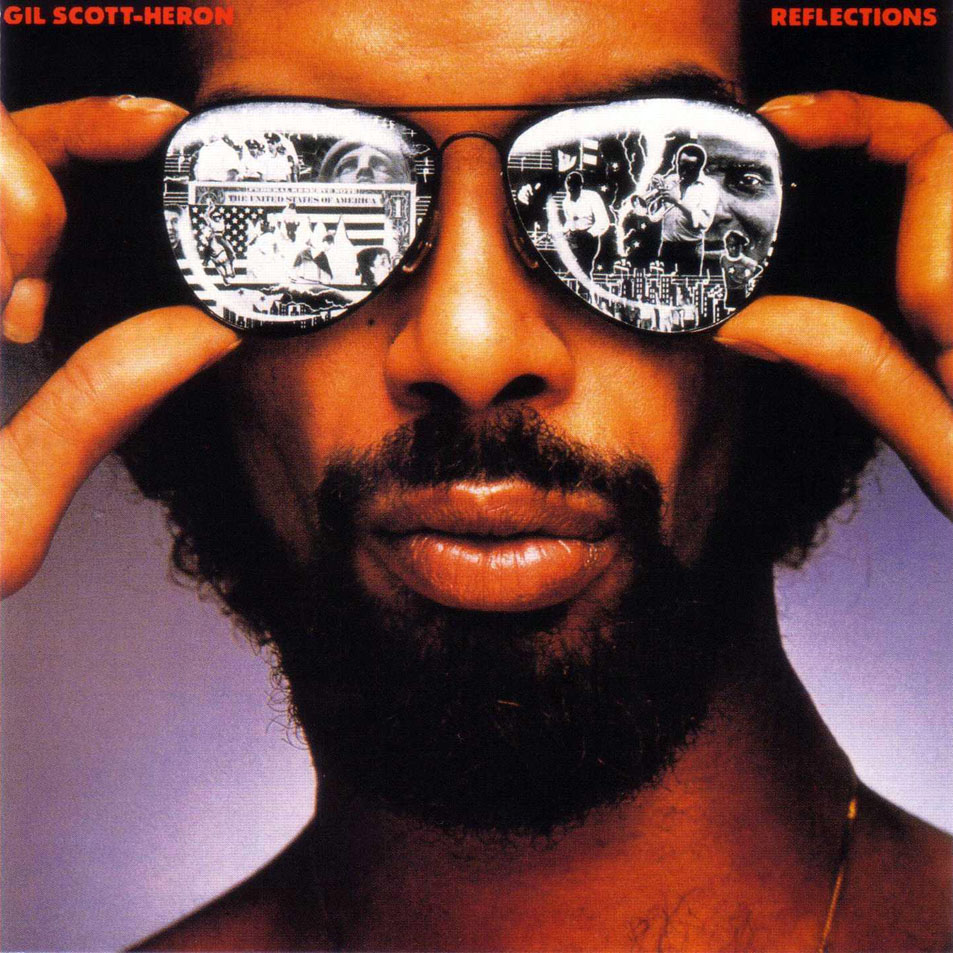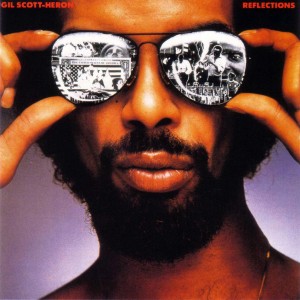
This week open threads will highlight Gil Scott Heron’s works.
Gilbert “Gil” Scott-Heron (April 1, 1949 – May 27, 2011) was an American soul and jazz poet, musician, and author, known primarily for his work as a spoken word performer in the 1970’s and ’80’s. His collaborative efforts with musician Brian Jackson featured a musical fusion of jazz, blues, and soul, as well as lyrical content concerning social and political issues of the time, delivered in both rapping and melismatic vocal styles by Scott-Heron. His own term for himself was “bluesologist”, which he defined as “a scientist who is concerned with the origin of the blues.” His music, most notably on Pieces of a Man and Winter in America in the early 1970’s, influenced and helped engender later African-American music genres such as hip-hop and neo-soul.
Besides influencing contemporary musicians, Scott-Heron remained active until his death, and in 2010 released his first new album in 16 years, entitled I’m New Here. A memoir he had been working on for years up to the time of his death, The Last Holiday, was also published, posthumously in January 2012.
His recording work received much critical acclaim, especially one of his best-known compositions “The Revolution Will Not Be Televised”. His poetic style has influenced every generation of hip- hop.
Early Years
Gil Scott-Heron was born in Chicago, Illinois. His mother, Bobbie Scott-Heron, was an opera singer who performed with the New York Oratorio Society. Scott-Heron’s father, Gil Heron, nicknamed “The Black Arrow,” was a Jamaican football player in the 1950’s who became the first black athlete to play for the Glasgow Celtic Football Club. Gil’s parents separated in his early childhood and he was sent to live with his maternal grandmother, Lillie Scott, in Jackson, Tennessee. When Scott-Heron was 12 years old, his grandmother died and he returned to live with his mother in the Bronx, New York City. He enrolled at DeWitt Clinton High School, but later transferred to The Fieldston School after impressing the head of the English department with one of his writings and earning a full scholarship. As one of five black students at the prestigious school, Scott-Heron was faced with alienation and a significant socioeconomic gap. During his admissions interview at Fieldston, an administrator asked him, “’How would you feel if you see one of your classmates go by in a limousine while you’re walking up the hill from the subway?’ And [he] said, ‘Same way as you. Y’all can’t afford no limousine. How do you feel?'” This type of intractable boldness would become a hallmark of Scott-Heron’s later recordings.
Scott-Heron attended Lincoln University in Pennsylvania, as it was the college chosen by his biggest influence Langston Hughes. It was here that Scott-Heron met Brian Jacksonwith whom he formed the band Black & Blues. After about two years at Lincoln, Scott-Heron took a year off to write the novels The Vulture and The Nigger Factory. The Last Poets performed at Lincoln in 1969 and Abiodun Oyewole of that Harlem group said Scott-Heron asked him after the performance, “Listen, can I start a group like you guys?” Scott-Heron returned to New York City, settling in Chelsea, Manhattan. The Vulture was published in 1970 and well received. Although Scott-Heron never received hisundergraduate degree, he received a Master’s degree in Creative Writing in 1972 from Johns Hopkins University. His 1972 masters thesis was titled Circle of stone.
The Revolution Will Not be Televised
“The Revolution Will Not Be Televised” is a poem and song by Gil Scott-Heron. Scott-Heron first recorded it for his 1970 albumSmall Talk at 125th and Lenox, on which he recited the lyrics, accompanied by congas and bongo drums. A re-recorded version, with a full band, was the B-side to Scott-Heron’s first single, “Home Is Where the Hatred Is”, from his album Pieces of a Man (1971). It was also included on his compilation album, The Revolution Will Not Be Televised (1974). All these releases were issued on the Flying Dutchman Productions record label.
The song’s title was originally a popular slogan among the 1960’s Black Power movements in the United States. Its lyrics either mention or allude to several television series, advertising slogans and icons of entertainment and news coverage that serve as examples of what “the revolution will not” be or do.

